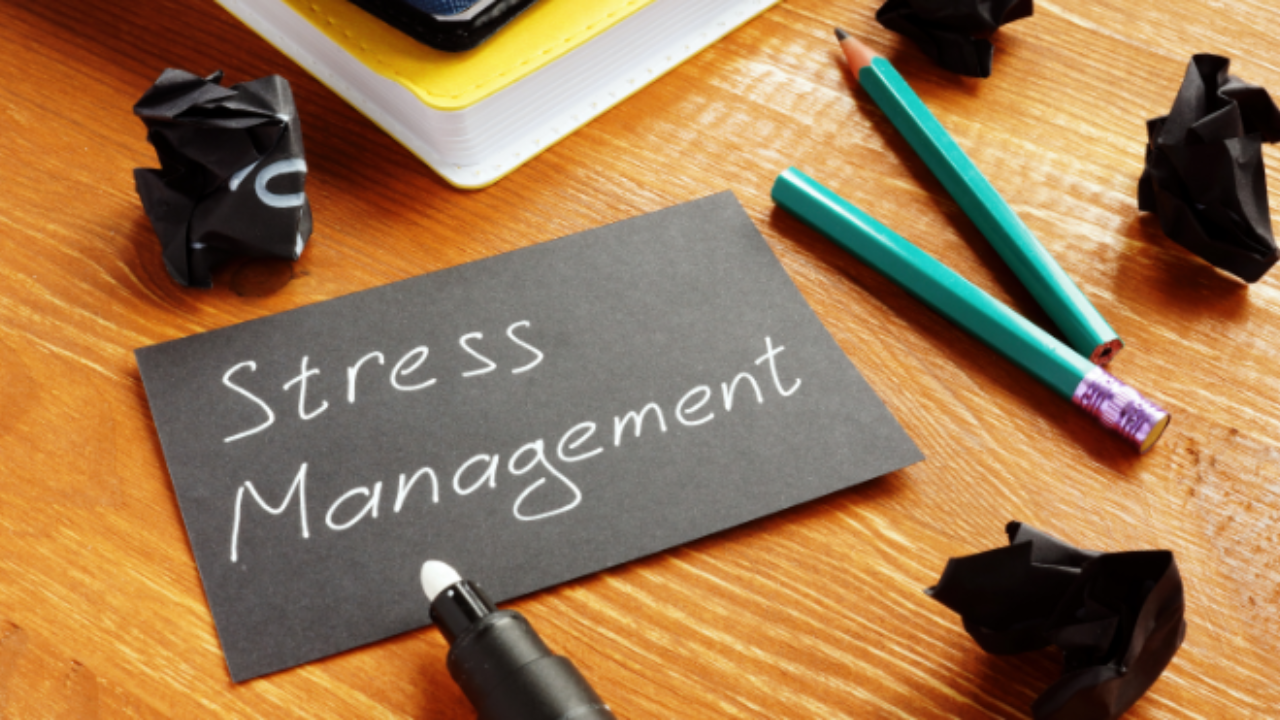Stress Management 1 Stress in the Medical Graduate Student

Welcome back! We just finished a series on the pervasive nature of imposter syndrome in students in our cohorts. Now, I’d like to broaden the subject to the problem of stress. I will share some research I have conducted on the subject, then present the stress-management techniques we share with students during a series of presentations.
Throughout this newsletter series, I refer to facts and data supported by a study in which I participated. The publication reference is as follows:
Rizzolo, D. & Massey, S. (2020) “Fluctuations in Stress Over Time During the First Year of Health Science Programs.” (2020) Journal of Allied Health. Vol 49. No. 2.
Why talk about stress?
I realize that saying medical graduate students experience increasing stress levels throughout their semesters seems blatantly obvious. Was there ever any doubt that higher education comes with its share of stressors?
Stress is a natural and useful human response to any demanding situation. Stress makes us work and try harder. It keeps us on our toes, reminding us of the importance and seriousness of our work. But as with anything, there comes a point of diminishing returns. When stress becomes constant and unmanageable, we become both mentally and physically exhausted, slowly losing our resources.
And of course, we know that as well…but knowing it is not quite the same as doing something about it. Even experienced adults can ignore their own stress levels until their health and happiness suffer; graduate students may be younger, less experienced with coping techniques, and under certain social pressures to perform.
Consider this: your PA programs might present some of its students with the first real, sustained “stress” levels they have ever encountered. In the past, they have dealt with finals week, financial aid questions, or application deadlines – stressful situations, but limited in duration.
Now they are in two or more years of a serious and intensive course of studies with little downtime and a constant stream of tests – literally, and figuratively. In fact, we may deal with students who are not even conscious of their own stress levels. That’s a common paradox about human behavior: any one of us can become so stressed and anxious that we can’t recognize what is happening. We don’t have the presence of mind to acknowledge that there is a problem.
Yes, most students could manage this without our help. PA education has produced gifted medical practitioners for years without offering stress-management courses, or even worrying much about whether any of our students were experiencing sleepless nights.
So why bother with helping students cope with stress? There are a number of good reasons, but here are three important ones:
- While most graduate studies are challenging, students in the health care professions have the added stressor of patient care placed on them. Health science programs are stressful enough to impact the mental and physical health of our students. How can we expect outstanding performance levels from students who are ill, depressed, and exhausted?
- Stress can decrease empathy, a key trait for medical professionals. Nunes et al. used the Jefferson Scale of Empathy at the start of the first year and at the end of the first year of health profession students and found that mean empathy scores had decreased over the year. They speculated that the decline might be due to the workloads they experienced, and warned educators about this loss. Empathy is vital to patient care; we do not want students to lose what was likely one of the most influential emotions leading them to this field.
- Excessive stress lowers performance. A PA School relies on attendance and passing PANCE rates. Students are our customers, and there is a definite customer satisfaction benefit to making them as comfortable as possible while they achieve their goals. We’re not coddling them, but showing them how to approach a difficult course of study with resourcefulness. These are skills they can take through their upcoming careers.
Conclusion
Please join me for the next four newsletters as we expand on this subject. Learning about stress management for the sake of our PA students is important – but I may be able to offer you a few ideas about managing the stress levels of your entire program. That includes your faculty, and even you! Let’s explore how we all can make stress work for us rather than against us.

